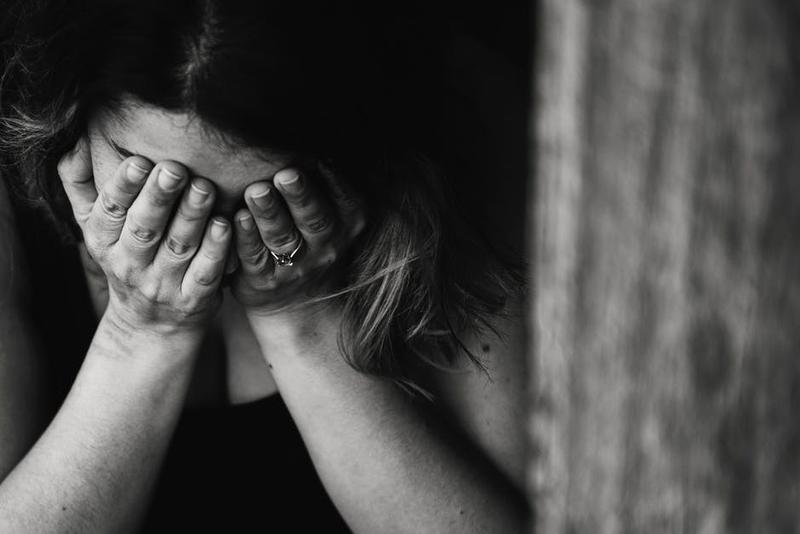KJIPUKTUK (Halifax) – It will come as no surprise to anyone who pays attention to the mainstream media that when it comes to stories about autistic and other disabled people, the caregivers, friends and family members get more airtime than disabled people themselves.

Whenever we hear from parents, relatives and other caregivers of disabled people there is an unspoken assumption that they always have the best of intentions for those they are responsible for, no questions asked. Especially when it’s a disabled child they are responsible for.
But this is problematic in many ways. It leads to the presumption of what is known as “caregiver benevolence”.
“Caregiver benevolence” was first coined in 2014 by noted autistic activist Kassiane Asasumasu through a lecture she gave at the University of Washington, Seattle, and later at Georgetown University. (See Part 1, Part 2, Part 3, Part 4 and Part 5 of the original lecture, and the transcript.) The crux of the argument is that when caregivers of disabled people are presumed to have good intentions 100% of the time, it necessarily results in the caregivers not being held accountable for any acts of abuse they may commit.
This often manifests itself in abusive caregivers being acquitted in court, and sometimes the acts of abuse or neglect being discounted altogether because the alleged victims are presumed to be incompetent. More importantly, it is common to presume that because caregivers of disabled people always have our best interests at heart, they should be forgiven for any lapses in judgement because they have taken on the significant “burden” of providing for us. This attitude, of course, results in the erasure of our own experiences from our stories, and we are reduced to mere props in our caregivers’ stories.
So why does this happen?
A big part of it is because of people’s attitudes toward disability. Disabled people are often held up as “inspiration” for abled people. The mainstream media is one of the guilty parties in this, and non-profits that claim to serve disabled people are also complicit in what’s known as “inspiration porn”. One could argue that we expect disabled people to be inspirational, because if we aren’t, then it’s okay to treat us badly to make us more inspirational and therefore better people.
Fear of disability is another major reason. Disability is seen by abled people as something to fear. This is why so many people don’t like to use the word “disabled”, but rather euphemisms like “special needs”, “exceptionalities”, or the worst offender, “differently abled”. Of course, there’s also the highly irrational and discredited fear that autistic people or people with mental illness are more prone to violence than others.
Yet another reason why abuse by caregivers is allowed to happen is because of parents’ belief that they didn’t get the child they wanted when their disabled child(ren) were born. Consequently, they can sometimes turn to ableist and abusive “therapies” in an effort to make their children “indistinguishable” from so-called “normal” children.
But the cold hard truth is, parents don’t always know best…not by a long shot! And when parents treat their autistic or otherwise disabled children in ways that would get them charged criminally if they treated their non-disabled children the same way, no one ever questions their actions.
The presumption of caregiver benevolence leads naturally and necessarily to the reasons why we have the Disability Day of Mourning. Every year on March 1, the disability community across the United States and Canada gathers to remember disabled people who were murdered by their family members or caregivers. I have organized an event in Halifax since 2017. As the Autistic Self-Advocacy Network says,
“We see the same pattern repeating over and over again. A parent kills their disabled child. The media portrays these murders as justifiable and inevitable due to the “burden” of having a disabled person in the family. If the parent stands trial, they are given sympathy and comparatively lighter sentences, if they are sentenced at all. The victims are disregarded, blamed for their own murder at the hands of the person they should have been able to trust the most, and ultimately forgotten. And then the cycle repeats.”
What to do?
So what can we do about this?
One of the most basic things we can do is let people know that abuse by caregivers does happen. Disabled people are regularly abused in their homes and especially in institutions. We also need stronger laws to protect disabled people, especially in cases of filicide so that parents and caregivers who murder their disabled children are treated the same as any other murderer. Further, all forms of seclusion and restraint, i.e. padded rooms in schools, need to be outlawed.
Institutions for disabled people need to be shut down, and governments need to provide better funding for in-home supports. Said services need to be highly regulated, with significant background checks for respite workers and other caregivers. Support workers also need to know how to treat disabled people with dignity and respect, and always to presume competence.
We also need to just ALWAYS PRESUME COMPETENCE. In particular, we need to stop assuming that kids in “special ed” classes or youth in care are lying when they say they’re being harmed by their support workers. (Read this piece from Kassiane to understand what I’m talking about.)
Another crucial thing we as disabled people can do is mentor young people with disabilities, so they have a friend who understands what they have to deal with. We can also believe each other when we hear about people who are hurting us.
However, the most important thing, as always, is to LISTEN TO DISABLED PEOPLE. The voices of disabled people must always take precedence over the caregivers and parents when talking about issues regarding disability. By taking the steps outlined above, we can make the world a safer place for disabled people and for everyone else.
See also: 34 new abuse cases in NS institutions, Freedom of Information response reveals
If you can, please support the Nova Scotia Advocate so that it can continue to cover issues such as poverty, racism, exclusion, workers’ rights and the environment in Nova Scotia. A paywall is not an option, since it would exclude many readers who don’t have any disposable income at all. We rely entirely on one-time donations and a tiny but mighty group of dedicated monthly sustainers.




Yes, Alex is right. Abusive actions by “caregivers” and “support workers” happens far too often.